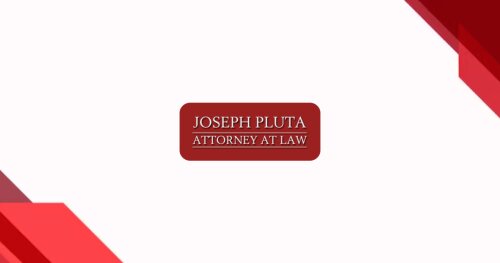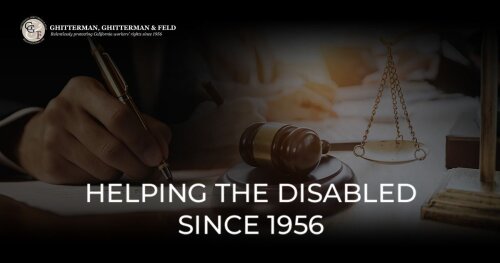Best Reinsurance Lawyers in Vermont
Share your needs with us, get contacted by law firms.
Free. Takes 2 min.
Or refine your search by selecting a city:
List of the best lawyers in Vermont, United States
About Reinsurance Law in Vermont, United States
Reinsurance is a specialized area of insurance law focused on the relationships between insurance companies and the companies that insure them, commonly known as reinsurers. In Vermont, reinsurance plays a significant role due to the state's robust regulatory framework and its reputation as a domicile for captive insurance companies. The purpose of reinsurance is to help insurers manage risk by sharing responsibilities for large losses with other carriers. This system helps stabilize the insurance market and protects primary insurers from catastrophic events.
Why You May Need a Lawyer
Reinsurance law is complex, involving intricate contracts and regulatory requirements at both federal and state levels. Legal challenges often arise in several situations, such as:
- Drafting or reviewing reinsurance contracts between insurers and reinsurers
- Resolving disputes regarding claims payment or coverage obligations
- Navigating disputes between cedents (primary insurers) and reinsurers regarding interpretation of contract terms
- Ensuring compliance with Vermont's reinsurance regulations and reporting requirements
- Structuring captive reinsurance arrangements to suit business needs
- Dealing with insolvency or run-off scenarios involving reinsurance agreements
- Addressing cross-border reinsurance transactions
Having an experienced reinsurance attorney can help protect your interests, avoid costly mistakes, and ensure that you are in full compliance with the law.
Local Laws Overview
Reinsurance in Vermont is governed primarily by state statutes administered by the Vermont Department of Financial Regulation (DFR). Vermont has established itself as a leading domicile for captive insurance, which directly impacts reinsurance arrangements. Key legal aspects include:
- Licensing requirements for reinsurance companies and intermediaries
- Minimum capital and surplus requirements for licensed reinsurers
- Approval processes for reinsurance agreements related to captives
- Regulatory reporting and disclosure obligations
- Rules governing credit for reinsurance, including requirements for domestic and non domestic reinsurers
- Guidelines for arbitration or litigation of reinsurance disputes
- Adoption of the National Association of Insurance Commissioners (NAIC) Model Reinsurance Regulations, with Vermont specific modifications
Staying informed about Vermont's evolving reinsurance statutes and regulations is critical, especially as federal and state authorities periodically update requirements.
Frequently Asked Questions
What is reinsurance?
Reinsurance is an arrangement where one insurance company (the reinsurer) agrees to assume some or all of the risks underwritten by another insurer, thereby helping the original insurer manage potential losses.
How does Vermont regulate reinsurance companies?
Vermont regulates reinsurance companies through licensing, solvency requirements, oversight of business practices, and regular reporting to the Department of Financial Regulation.
What is a captive insurer, and why is Vermont known for them?
A captive insurer is an insurance company formed to insure the risks of its parent company or related entities. Vermont is a leader in captive insurance due to its supportive legal and regulatory framework tailored to this business model.
Do all reinsurance contracts require regulatory approval in Vermont?
Not all, but contracts involving captive insurers in Vermont often require regulatory review and approval to ensure compliance with state laws and to protect policyholder interests.
What are common disputes in reinsurance agreements?
Common disputes include disagreements over coverage terms, claims handling, payment obligations, and how losses are allocated between the insurer and reinsurer.
Can foreign reinsurance companies do business in Vermont?
Yes, provided they meet Vermont's requirements for credit for reinsurance and are properly approved or licensed according to state regulations.
What is credit for reinsurance?
Credit for reinsurance allows primary insurers to reduce the amount of reserves they are required to hold when transferring risk to a qualified reinsurer, subject to meeting statutory conditions.
When should a reinsurance lawyer be consulted?
A reinsurance lawyer should be consulted when drafting or reviewing reinsurance agreements, during regulatory reviews, if a dispute arises, or whenever there are questions about compliance or risk structuring.
Are arbitration clauses common in Vermont reinsurance contracts?
Yes, arbitration clauses are commonly used to resolve disputes quickly and privately between insurers and reinsurers, and they are generally recognized by Vermont law.
Where can I find official regulations on reinsurance in Vermont?
Official regulations are available from the Vermont Department of Financial Regulation. Consulting with legal or industry professionals can help interpret these complex rules.
Additional Resources
- Vermont Department of Financial Regulation (DFR) - Oversees insurance and reinsurance licensing and compliance
- National Association of Insurance Commissioners (NAIC) - Provides model laws and regulatory standards relevant to reinsurance
- Vermont Captive Insurance Association (VCIA) - Offers resources and advocacy for captive insurers and reinsurers in Vermont
- Insurance industry trade groups and local law firms with experience in insurance and reinsurance law
Next Steps
If you require legal assistance with reinsurance matters in Vermont, consider taking the following steps:
- Identify the specific legal issues or questions you are facing concerning reinsurance
- Gather all relevant documentation, including contracts, correspondence, and regulatory filings
- Contact an attorney who specializes in reinsurance or insurance law, especially one familiar with Vermont's unique regulatory environment
- Consult with the Vermont Department of Financial Regulation or other relevant bodies as necessary
- Stay informed about changes in reinsurance law by subscribing to industry updates or joining relevant associations
Reinsurance law in Vermont is complex and highly specialized. Consulting with knowledgeable legal professionals will help ensure that your business remains compliant and that your interests are effectively protected.
Lawzana helps you find the best lawyers and law firms in Vermont through a curated and pre-screened list of qualified legal professionals. Our platform offers rankings and detailed profiles of attorneys and law firms, allowing you to compare based on practice areas, including Reinsurance, experience, and client feedback.
Each profile includes a description of the firm's areas of practice, client reviews, team members and partners, year of establishment, spoken languages, office locations, contact information, social media presence, and any published articles or resources. Most firms on our platform speak English and are experienced in both local and international legal matters.
Get a quote from top-rated law firms in Vermont, United States — quickly, securely, and without unnecessary hassle.
Disclaimer:
The information provided on this page is for general informational purposes only and does not constitute legal advice. While we strive to ensure the accuracy and relevance of the content, legal information may change over time, and interpretations of the law can vary. You should always consult with a qualified legal professional for advice specific to your situation.
We disclaim all liability for actions taken or not taken based on the content of this page. If you believe any information is incorrect or outdated, please contact us, and we will review and update it where appropriate.
Browse reinsurance law firms by city in Vermont
Refine your search by selecting a city.










